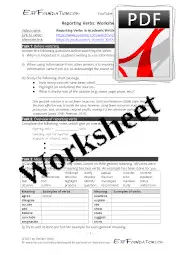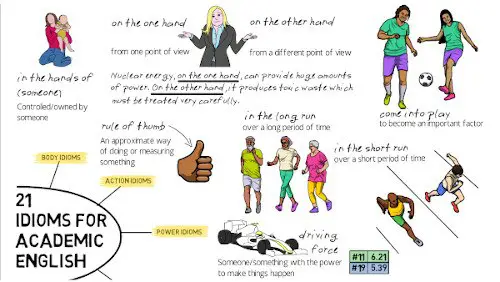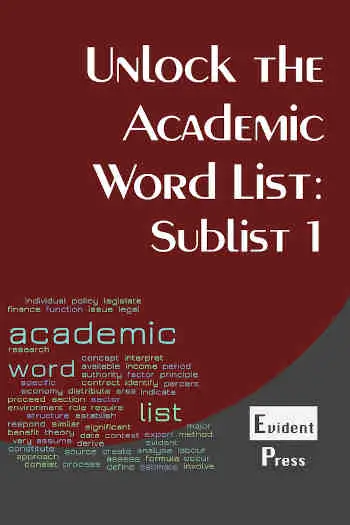Show AWL words on this page.
Show sorted lists of these words.


 







|
 Podcast is loading. Too slow? Click here to access.
Podcast is loading. Too slow? Click here to access.
Although it is often assumed that idioms are too informal for use in academic English, two studies have identified idioms which occur fairly frequently in spoken and written academic English.
This page describes idioms in academic English, giving information on what an idiom is, why academic idioms should be studied, as well as a list of academic idioms for spoken and written English from a recent study of idioms (Miller, 2019), giving first background to the creation of the list and finally the list itself.
There are also some exercises to help you practise using academic idioms.
 For a different look at the some of the idioms, check out the
academic idioms infographics ».
For a different look at the some of the idioms, check out the
academic idioms infographics ».
What is an idiom?

For another look at the same content, check out the video on YouTube (also available on Youku). There is a worksheet (with answers and teacher's notes) for this video.
An idiom is a fixed, well-established, multi-word expression, the meaning of which is not deducible from the individual words. The following are some examples of idioms in everyday (not academic) English.
- Raining cats and dogs - raining very hard
- Break a leg - said before a performance, meaning 'good luck'
- Behind one's back - secretly
The following are some examples of idioms for academic English use (a complete list is given below).
- On the other hand - from another point of view (showing contrast)
- Bear in mind - think of something, especially as a warning
- The bottom line - the main or essential point
- Take on board - accept or deal with (a problem or idea)
Why study academic idioms?
Idioms are common in everyday spoken and written English. Although it is often assumed that idioms are too informal for use in academic English, two studies (Simpson and Mendis, 2003, and Miller, 2019) have identified idioms which are used in academic contexts, more commonly in spoken academic contexts though also in academic writing. In Miller's study, idioms in spoken academic texts, including repetitions, occurred with a frequency of 835 per million words, or close to 0.1%. While this figure is not as high as, say, words in the Academic Word List (10%) or the Academic Collocation List (1.4%), productive knowledge of idioms will assist students in becoming part of the academic discourse community, while receptive knowledge will aid them in understanding spoken or written texts.
Miller reports that idioms may sometimes be signposted by lecturers (e.g. via the phrase as it were) or writers (e.g. via the phrase as they say or by use of quotation marks). However, these methods do not always signal idiom use, do not help students to understand the meaning of idioms, and in fact add a layer of complexity to academic English study (in terms of what as it were and as they say mean and why quotation marks are used in that way).
Academic Idioms List: background to the list
The list of academic idioms (below) comes from the study by Julia Miller (2019), which used two academic English corpuses: the British Academic Spoken English (BASE) corpus for spoken texts (lectures and seminars), and the Oxford Corpus of Academic English (OCAE) for written texts. Only idioms with a frequency of more than 1.2 per million words (pmw) in the BASE were included.
The range of idiom use is shown by the number of texts in which each idiom occurs, as well as the number of faculties (i.e. disciplinary groups) it occurs in. Miller's study used four such faculties, namely Social Sciences (which had the highest idiom use with 234 pmw), Arts and Humanities (which had 191 idioms pmw), Life and Medical Sciences (183 pmw), and Physical Sciences (which had the least frequent use, 76 pmw).
Most idioms in the list occur in more than one faculty, meaning they are suitable for study by all students of academic English. The most frequent idiom used in only one faculty, gold standard (24th most frequent idiom in spoken academic English and 10th most frequent in written academic English), was used only in the Life Sciences (medical articles).
References
Miller, J. (2019) 'The bottom line: Are idioms used in English academic speech and writing?', Journal of English for Academic Purposes, 43 (2020) 100810. Available online at: https://doi.org/10.1016/j.jeap.2019.100810.
Simpson, R., and Mendis, D. (2003) 'A corpus-based study of idioms in academic speech', Tesol Quarterly, 37(3), 419e441. Available online at: https://deepblue.lib.umich.edu/bitstream/handle/2027.42/90255/3588398.pdf?sequence=1.
Exercises
Academic Idioms List: Written
The list below gives written academic idioms from the OCAE (Oxford Corpus of Academic English) corpus, listed in order of frequency. There are 38 idioms in total. There is a separate version of 170 idioms for spoken academic English (use the button below to switch lists). Definitions are included for all idioms. [Note: Sp freq pmw means spoken frequency per million words while Wr freq pmw refers to written frequency per million words.]
| No. | Idiom | Definition | Sp freq pmw (BASE) | Wr freq pmw (OCAE) | No. texts | No. faculties |
| 1 | on the other hand | adv (contrastive) from another point of view. [Syn: then again, but then] | 64.11 | 88.12 | 30 | 4 |
| 2 | in (the) light of | adv in view of, because of, considering. | 5.39 | 34.99 | 8 | 3 |
| 3 | on the one hand | adv from one point of view. [Syn: on one hand] | 37.74 | 31.87 | 30 | 4 |
| 4 | on the other [hand] | adv (contrastive) from another point of view. [Syn: then again, but then] | 10.19 | 20.34 | 12 | 3 |
| 5 | in the hands of | adv controlled or owned by someone. | 6.59 | 12.54 | 10 | 3 |
| 6 | bear in mind | verb (1) keep in mind. [Syn: mind] (2) think of something, especially as a warning. | 46.73 | 10.17 | 42 | 4 |
| 7 | in its own right | adv because of its own special qualities. | 5.99 | 9.27 | 10 | 4 |
| 8 | along the lines of | adv in a similar way or of a similar type. | 6.59 | 9.24 | 9 | 3 |
| 9 | in the long run | adv after a very lengthy period of time. [Syn: in the end] | 5.39 | 7.84 | 9 | 4 |
| 10 | gold standard | noun (1) a monetary standard under which the basic unit of currency is defined by a stated quantity of gold. (2) a paragon of excellence. | 5.39 | 6.66 | 6 | 1 |
| 11 | a step further/back | noun action that will be helpful/harmful to a situation. | 7.19 | 6.21 | 12 | 4 |
| 12 | driving force | noun someone or something that makes something happen. | 5.39 | 6.21 | 8 | 4 |
| 13 | the balance of power | noun an equilibrium of power between nations. | 10.78 | 6.20 | 8 | 2 |
| 14 | come into play | verb begin to be used or begin to have an effect. | 5.39 | 4.26 | 8 | 3 |
| 15 | in the short run | adv over a relatively brief period of time (often used in contrast with the long run) . | 3.00 | 4.19 | 2 | 2 |
| 16 | last resort | noun (1) French for `worst going'. [Syn: pis aller] (2) the only choice that remains after all others hand been tried. | 3.00 | 4.05 | 5 | 2 |
| 17 | rule of thumb | noun a rule or principle that provides guidance to appropriate behavior. [Syn: guidepost, guideline] | 1.20 | 2.98 | 2 | 2 |
| 18 | golden age | noun (1) a time period when some activity or skill was at its peak. (2) any period (sometimes imaginary) of great peace and prosperity and happiness. (3) (classical mythology) the first and best age of the world, a time of ideal happiness, prosperity, and innocence; by extension, any flourishing and outstanding period. [Syn: Golden Age] | 3.00 | 2.96 | 3 | 2 |
| 19 | bad news | noun someone or something that is undesirable or dangerous. | 5.39 | 2.75 | 8 | 4 |
| 20 | go hand in hand with | verb be closely related to or happening at the same tim. | 3.59 | 2.68 | 5 | 3 |
| 21 | on one hand | adv from one point of view. [Syn: on the one hand] | 1.80 | 2.58 | 3 | 2 |
| 22 | on the face of it | adv from appearances alone. [Syn: apparently, seemingly, ostensibly] | 5.39 | 2.57 | 8 | 4 |
| 23 | the bottom line | noun the main or essential point. | 8.39 | 2.50 | 8 | 4 |
| 24 | in the early days | noun an early period of development. [Syn: youth] | 3.59 | 2.33 | 5 | 4 |
| 25 | beg the question | verb (1) to cause someone to ask a particular question. (2) to talk about something as if it were true, even though it may not be. | 2.40 | 2.18 | 2 | 2 |
| 26 | from scratch | adv from the beginning. | 3.59 | 1.86 | 6 | 3 |
| 27 | go without saying | verb to be so obvious that it does not need explanation. | 4.79 | 1.85 | 6 | 2 |
| 28 | trial and error | noun experimenting until a solution is found. | 4.79 | 1.85 | 5 | 3 |
| 29 | bridge the gap | verb to connect two things or make the difference between them smaller. | 3.59 | 1.85 | 6 | 3 |
| 30 | get to grips with | verb deal with (a problem or a subject). [Syn: come to grips] | 3.59 | 1.78 | 4 | 3 |
| 31 | a fair share | noun a reasonable amount. | 1.20 | 1.55 | 2 | 1 |
| 32 | the high point | noun the best or most enjoyable part of a given experience. | 2.40 | 1.52 | 4 | 2 |
| 33 | the whole story | noun all the facts. | 2.40 | 1.41 | 3 | 3 |
| 34 | at the end of the day | adv taking everything into consideration. | 14.98 | 1.36 | 13 | 4 |
| 35 | state of the art | noun the highest degree of development of an art or technique at a particular time. | 4.19 | 1.36 | 4 | 2 |
| 36 | behind the scenes | adv happening without people knowing it, especially when something else is happening publicly. | 2.40 | 1.36 | 3 | 2 |
| 37 | the big picture | noun the whole story or idea. | 3.59 | 1.30 | 6 | 3 |
| 38 | across the board | adv including or applying to all. | 5.99 | 1.21 | 7 | 3 |
Some definitions take from WordNet 3.0 Copyright 2006 by Princeton University. All rights reserved. THIS SOFTWARE AND DATABASE IS PROVIDED "AS IS" AND PRINCETON UNIVERSITY MAKES NO REPRESENTATIONS OR WARRANTIES, EXPRESS OR IMPLIED. BY WAY OF EXAMPLE, BUT NOT LIMITATION, PRINCETON UNIVERSITY MAKES NO REPRESENTATIONS OR WARRANTIES OF MERCHANT- ABILITY OR FITNESS FOR ANY PARTICULAR PURPOSE OR THAT THE USE OF THE LICENSED SOFTWARE, DATABASE OR DOCUMENTATION WILL NOT INFRINGE ANY THIRD PARTY PATENTS, COPYRIGHTS, TRADEMARKS OR OTHER RIGHTS.






